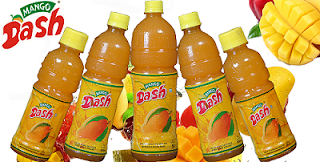Mangoes are one of the most popular fruits in the world and are highly appreciated for their sweet and succulent taste. However, they are much more than just a tasty fruit. Mangoes are known to have a significant number of health benefits because of the high quantity of vitamins and minerals. Moreover, the fruit is also rich in antioxidant properties – thereby helping the body fight off any free radicals that are capable of causing internal damage.
Mango juice contains a number of valuable nutrients. The naturally fulfilling fruit beverage also acts as a beneficial dietary food item that aids in normal bodily functions and the prevention of health risks and disease.
Mangoes are considered to be an extremely good food choice for dieters because it has a high fiber content and a low calorie content. A mango provides about 40% of the general daily fiber requirement for the human body. This contributes to more than just reducing the intensity of heartburn and constipation, as it also serves to reduce cholesterol counts, blood levels and is said to reduce cancer development risk. The nutrients contained in Mango Fruit Drink include significant sources of vitamin A and vitamin C. Both of these help to regulate the enzymes, as well as metabolic processes. It thereby allows the body to manage appetite much better. It is, however, important to avoid consuming too much mango juice as it will lead to a significant rise in blood sugar over a period of time.
Nutritional Content:
Like many other natural fruit drinks, mango juice, sometimes referred to as mango nectar, packs a variety of both vitamins and minerals. Each cup of mango juice adds a more than feasible source of both vitamins A and C to any diet. India Juice without added sugars, pure mango nectar contains about 30 grams of sugary carbohydrates per cup.
Although mangoes contain moderate to high levels of carbohydrates, they cause little fluctuation in blood-sugar levels. This process lets the body maintain appetite and metabolic processes much easier. Plus, none of the calories found in mangoes comes from fat, making the juice an easily digestible, energy providing drink.
Nutrition Facts of Mango Juice per 100 ml
Energy: 58 KcalFat: NIL
Carbohydrate: 14.6 g
Vitamin C: 10.34 mg
Sugar: 14.5 g
Iron: 0.3 mg
Protein: 0.11 g
Sodium: 15mg
Health Benefits:
One cup of mango juice contains over 60% of the daily recommended intake of vitamin C, which helps the body regulate enzymes and metabolic processes. Mangoes also have high levels of vitamin A, with one cup providing nearly 40% of the daily required valued. This important nutrient helps maintain healthy eye function and growth, gene transcribing and the maintenance of healthy skin tissue.
Juice In India also provides a good source of calcium and iron. Iron helps the body eliminate free radicals, while calcium assists with the formation of healthy teeth and bones.
Health Warnings:
Consuming too much mango juice will lead to an excess amount of sugars within the body. Too much sugar will increase fat storage and lead to weight gain. However, some athletes benefit from loading up on complex and simple sugars before long-lasting events.



No comments:
Post a Comment